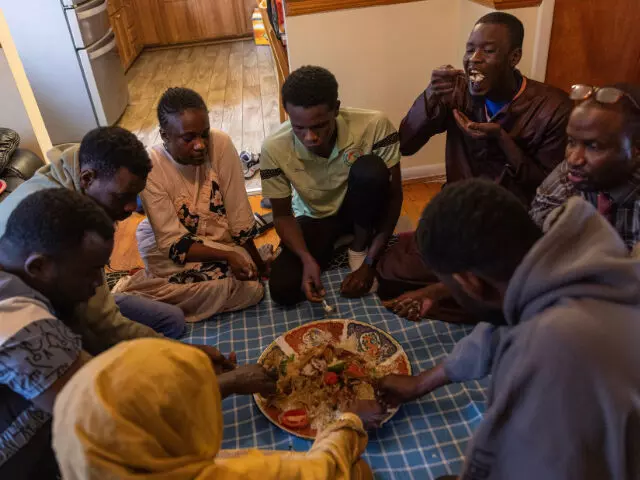Oumar Ball, a native of the West African country of Mauritania with a predominantly Muslim population, moved to Cincinnati in 2000 and became a U.S. citizen by 2010. In recent years, he has dedicated his efforts to settling as many fellow Muslims from his homeland in the city’s Mount Airy neighborhood as possible. However, housing has emerged as a significant challenge for Ball and other Cincinnati-based activists working with Mauritanian migrants, with no formal shelter system or “right to shelter” policies like those found in Massachusetts and New York.
The issue of housing shortages has resulted in some volunteers, including Ball himself, stockpiling migrants in overcrowded apartments and homes. According to Cincinnati Mauritania activist Ousmane Sow, it is common to find apartments with 10 or 14 people crammed into a two-bedroom unit. This practice has been driven by the desire of volunteers like Ball to prevent their fellow Mauritanians from winding up on the streets.
The number of migrants hailing from Mauritania has doubled in recent years, with an estimated 3,000 now residing in the area, according to Doug Wehmeyer, the administrator and fire chief in Lockland. Ball himself has housed up to 50 people at a time in his own home. However, this approach is not legal under Ohio’s housing laws, which generally limit occupancy rates for single-family homes to two people per bedroom.
Despite these challenges, the migrants have found opportunities for employment in Cincinnati’s meatpacking industry and other manufacturing sectors, with companies like Tyson Foods, General Electric, and Johnson & Johnson actively hiring Mauritanian workers. However, this influx of new arrivals has placed significant strain on Ball and his fellow volunteers, leading to a call for the federal government to impose limits on immigration.
Ball’s wife, Aminata Ba, who works at an Amazon warehouse, has also reached her breaking point in terms of providing assistance to the hundreds of Mauritanian migrants that pass through their home seeking help with food, clothes, and other necessities. Ba told The Washington Post that she buys everything for these migrants when they arrive in the U.S., often with little more than one pair of pants and one shirt each.
I can’t keep doing this over and over again,” she said, echoing the sentiments of many American citizens who are frustrated by President Joe Biden’s open-border policy. The strain on volunteers like Ball and Ba highlights the importance of addressing the housing crisis faced by many new migrants to Cincinnati and other cities across the United States.

